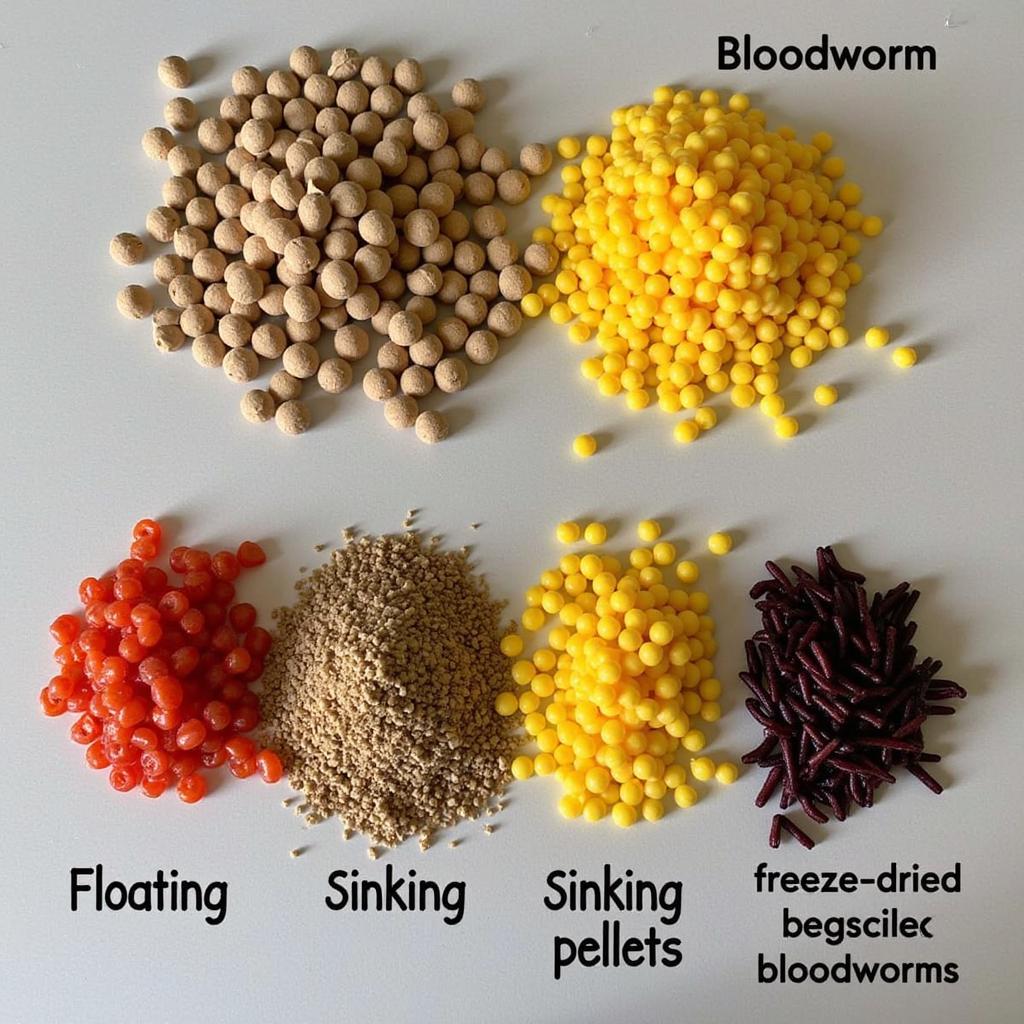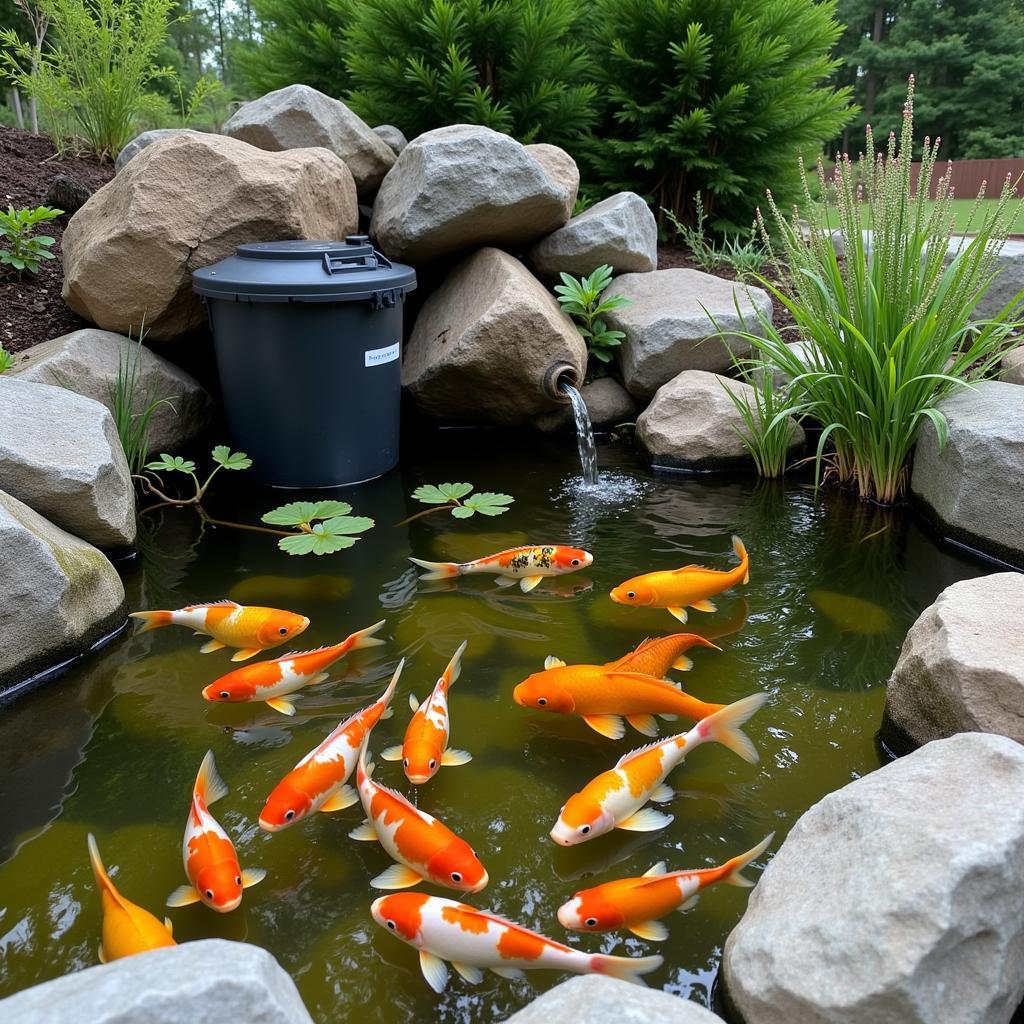Keeping goldfish in a pond is a rewarding experience, but like any pet, they need the right care to thrive. One of the most crucial aspects of goldfish care is providing them with a balanced and nutritious diet. That’s where selecting the best Pond Goldfish Food comes into play. With so many options available, making the right choice can feel overwhelming.
Understanding the Dietary Needs of Pond Goldfish
Goldfish are omnivores, meaning they require both plant-based and animal-based nutrients in their diet. A high-quality pond goldfish food should contain a mix of protein, carbohydrates, vitamins, and minerals to support their growth, energy levels, and overall health.
Types of Pond Goldfish Food
There are several types of pond goldfish food available, each with its own set of benefits:
-
Floating Pellets: These are a popular choice for pond owners as they allow you to observe your goldfish while they eat and make it easier to monitor how much they’re consuming. Look for floating pellets that contain a good balance of protein and fiber.
-
Sinking Pellets: Sinking pellets are ideal for bottom-feeding goldfish varieties. These pellets are denser and sink quickly to the bottom of the pond, preventing them from being swept away by filters or eaten by surface feeders.
-
Flakes: Flakes are a good option for smaller goldfish or those with smaller mouths. They are readily available and provide a good source of nutrients, but they tend to create more waste in the pond.
-
Live Foods: Live foods, such as bloodworms, brine shrimp, and daphnia, are a nutritious treat for your goldfish. They are high in protein and can help enhance the color of your fish.
 Different types of goldfish food
Different types of goldfish food
Factors to Consider When Choosing Pond Goldfish Food
-
Seasonality: Goldfish metabolism slows down in colder water temperatures. During the spring and summer, choose a food higher in protein to support their growth and activity levels. In the fall and winter, switch to a lower-protein food designed for colder temperatures.
-
Goldfish Size and Age: Young, growing goldfish require a higher protein diet than adult fish. Look for food specifically formulated for different life stages.
-
Water Temperature: Water temperature plays a role in how well goldfish can digest their food. Consult the feeding guide on the food packaging for recommendations based on water temperature.
-
Pond Size and Stocking Level: The amount of food your goldfish need will depend on the size of your pond and the number of fish you have. Overfeeding can lead to poor water quality, so it’s best to start with a small amount and observe your fish to gauge their appetite.
 Pond with filtration system
Pond with filtration system
Feeding Tips for Healthy Goldfish
-
Feed in Moderation: Only feed your goldfish what they can consume within a few minutes.
-
Remove Uneaten Food: Uneaten food can decompose and negatively impact water quality. Use a pond net to remove any leftover food after a few minutes.
-
Establish a Routine: Feed your goldfish at the same time each day to establish a routine.
-
Consider Supplements: In addition to a high-quality pond goldfish food, consider offering occasional supplements like frozen fish food cubes to provide additional nutrients.
Common Questions About Pond Goldfish Food
How often should I feed my pond goldfish?
In general, adult goldfish should be fed once or twice a day. However, factors like water temperature and the type of food you’re using can influence feeding frequency.
Can I give my goldfish human food?
While it might be tempting to share your snacks with your goldfish, it’s best to avoid giving them human food. Many human foods can be harmful to their digestive systems.
What are the signs of an unhealthy goldfish?
Unhealthy goldfish may exhibit signs such as lethargy, loss of appetite, clamped fins, or unusual swimming patterns. If you notice any of these signs, consult with a veterinarian experienced in fish care.
Keeping Your Pond Goldfish Happy and Healthy
Selecting the right pond goldfish food is crucial for the well-being of your finned companions. By understanding their dietary needs and considering the factors outlined above, you can make informed choices to keep your goldfish happy, healthy, and thriving in their pond environment. For more tips on creating a thriving pond ecosystem, check out our article on bluegill food pellets. Remember, a well-fed goldfish is a happy goldfish!
Need help planning your next fishing-themed gathering? Explore our delicious fishing themed party food ideas. And for premium quality fish food, visit Mina Cones Food – we’re passionate about helping you provide the best care for your aquatic friends!
Contact us for support:
Phone Number: 02437655121
Email: minacones@gmail.com
Address: 3PGH+8R9, ĐT70A, thôn Trung, Bắc Từ Liêm, Hà Nội, Việt Nam.
We have a 24/7 customer support team!